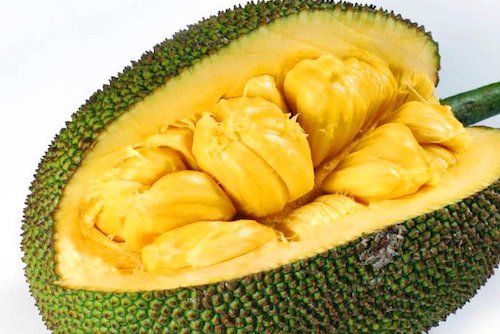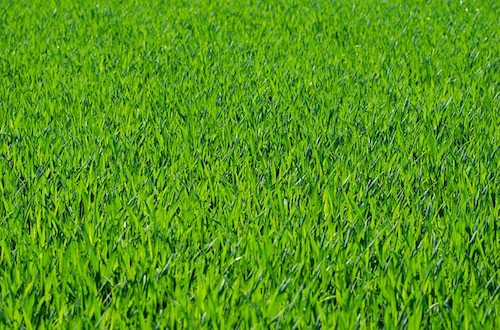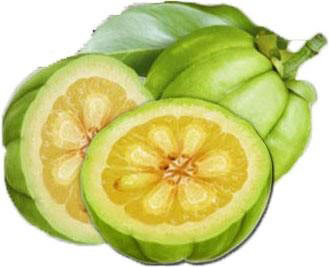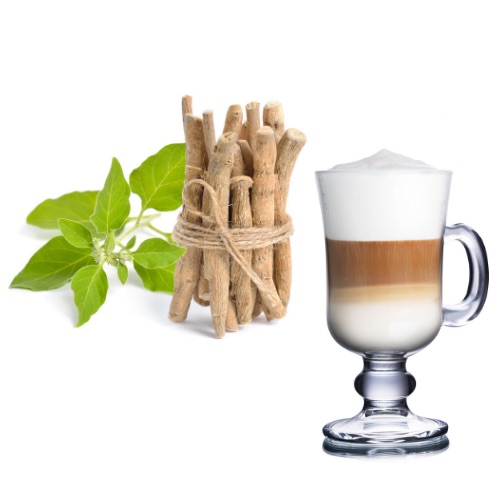The ruby-red arils that capture the essence of a unique blend of sweet and tart flavours symbolise a marvel of nature known to us as the pomegranate. This has a botanical name Punica granatum. This fruit, with its distinctive crown and thick, leathery skin, is an integral part of various cultures, revered not only for its delightful taste but also for the plethora of health benefits it encapsulates.
The plant which bears this nutritious produce is an elegant, deciduous shrub, characterized by its glossy, oblong leaves and beautiful orange-red flowers. Native to the regions of Iran and northern India, it thrives in Mediterranean climates, thus forming a vital part of landscapes in these areas. The tree is also remarkable for its resilience, with an ability to withstand droughts and adapt to a variety of soil conditions.
Over centuries, this tree and its fruit have been lauded in history, literature, art, and religion, representing themes of prosperity, fertility, and eternal life. Today, it continues to be valued, spanning from culinary use in exquisite dishes, to its critical role in research related to health and wellness.
Table of content
Effect of pomegranate on dosha
pomegranate benefits for women
Benefits of pomegranate fruit peel
Pomegranate in Ayurveda
Pomegranate (Punica granatum) is also known as “Dadima” in ayurveda. It also has synonyms like “dantabeeja” as arrangement of arils looks like line of perfect teeth and “raktapushpaka”, as its flowers are red in colour. This fruit is popular as “anar” in India. Texts of ayurveda describe its immense medicinal properties and its uses to maintain human health. The fruit peel, seeds, bark and leaves of this plant are of great medicinal value.
The ayurveda health benefits of this fruit are described as follows in Bhava Prakasha

When this fruit is relished, different tastes like sweet (madhura rasa), sour (amla rasa) and astringent (kashaya rasa) evolve at different stages. It is light to digest ( laghu) and increases the moistness of tissues ( snigdha). Its potency is neither cold nor hot.
This fruit is known by many name in local languages of India
- “anar” in hindi,
- daalim in Bengali
- dalimb in marathi
- dadama in gujarati
- madulai in tamil
- daanimma in telagu
- dalimbe in kannada
- maatalam in Malayalam
Ayurveda acharyas explain two types of “dadima”
- Sweet tasting
- Sour Tasting.
Effect of Pomegranate on dosha
The sweet tasting dadima, balances all three dosha viz vata, pitta and kapha. But sour tasting ones increase pitta, but balance vata and kapha.
Pomegranate benefits for men
This fruit and its juice are praised as “shukrala” in ayurveda. This means anar boosts health of “shukra dhatu” , which in turn enhances health of semen and increases stamina.
Increases male fertility
This fruit with “Shukrala” properties help men to improve their fertility by boosting health of semen. , which means it increases Shukra dhatu or semen.
Emerging research suggests that the pomegranate, renowned for its antioxidant properties, can play a significant role in enhancing male fertility. The fruit’s juice is rich in bioactive compounds including polyphenols and flavonoids, which have been linked to improved sperm quality and motility. Moreover, its anti-inflammatory and anti-oxidative properties may help protect against oxidative stress, a leading cause of male infertility. An example of such research is a study published in the “Journal of Clinical Biochemistry and Nutrition” (2012) demonstrating improved semen parameters and antioxidant status among male subjects consuming pomegranate juice daily over a period of weeks. Pomegranate is the best fruit to include in the diet to rectify male infertility.
A natural remedy for Erectile Dysfunction
The antioxidants present in this fruit clear the blocked arteries and increase plasma nitrate and nitrite levels, thus improving klaibya or erectile dysfunction. Naturopaths call pomegranate juice as “liquid Viagra”.
Research suggests that the pomegranate, an abundant source of antioxidants, can potentially enhance male sexual function. Its juice, rich in polyphenols, has been linked with improved blood circulation, a critical factor in sexual performance. Moreover, this scarlet treasure contains compounds that influence the production of testosterone, contributing to increased libido. Studies also indicate potential benefits in alleviating erectile dysfunction, attributing this to the fruit’s vasodilatory properties, enhancing blood flow to the genital area. Consuming the fruit or its juice could thus contribute to an improved sexual health. For more, refer to the study by Forest et al., 2007 titled “Efficacy and safety of pomegranate juice on improvement of erectile dysfunction in male patients with mild to moderate erectile dysfunction: a randomized, placebo-controlled, double-blind, crossover study” (reference cutoff as of September 2021).
Pomegranate benefits for women
This radiant fruit, the pomegranate, serves as a powerhouse of nutrients that have several advantages particularly beneficial to women. It is abundant in vitamins C and K, folate, and dietary fiber, which support overall health and wellbeing.
The fruit’s juice is a potent source of antioxidants, which play a critical role in combatting oxidative stress, a factor associated with a range of diseases including cancer. Its antioxidants, particularly punicalagins, are reported to be three times more powerful than those of red wine and green tea (Seeram et al., 2006).
Helps during menopause
For women facing menopausal challenges, the fruit’s natural plant estrogens (phytoestrogens) can help alleviate symptoms like hot flashes. It has been demonstrated to contribute to heart health by reducing cholesterol levels and blood pressure, an aspect of significant importance given the increased risk of cardiovascular diseases post menopause.
Preliminary research also suggests that its juice may help in improving bone health, providing potential protective effects against osteoporosis. Furthermore, it could help in maintaining skin elasticity, due to its anti-aging properties, thereby preventing premature skin aging.
Benefits in pregnancy
The vibrant pomegranate holds numerous benefits for expecting mothers. Packed with ample amounts of essential nutrients, it aids in healthy development of the fetus. High levels of folic acid make it indispensable for preventing neural tube defects. A robust source of potassium, it assists in managing blood pressure levels during pregnancy. Moreover, the fruit’s rich vitamin C content contributes to boosting immunity, crucial for both the mother and the growing baby. The refreshing juice from this nutritious gem, when consumed regularly, can also help maintain hydration levels and reduce pregnancy-related nausea. Overall, it’s a wholesome fruit that can positively support maternal health.
Incorporating this fruit or its juice into daily nutrition could therefore serve as a strategy for women’s health maintenance and disease prevention.
Pomegranate benefits for skin
According to texts of ayurveda the bark of pomegranate tree is useful in skin problems. The bark is boiled in water and this water is used to wash skin. It helps to heal inflamed skin, acne and pimple.
Drinking pomegranate juice helps to increase glow of skin and slows down ageing. Thus the aging signs like wrinkles and fine lines disappear with regular use of this fruit.
Packed with powerful antioxidants, particularly punicalagins and vitamin C, pomegranates provide a myriad of benefits for the skin. They help combat oxidative stress, one of the key factors in premature aging, preserving the skin’s youthful appearance. Furthermore, these antioxidants aid in skin cell regeneration, enhancing the healing process of wounds and scars. Pomegranates also contribute to increased collagen production, which ensures skin elasticity and firmness. The fruit’s anti-inflammatory properties can soothe irritation and redness, making it suitable for those with sensitive skin. Lastly, the moisturizing qualities of pomegranate oil make it a popular ingredient in skincare products for dry skin types.
Pomegranate for weight loss
The power-packed fruit, pomegranate, offers a multitude of health benefits, with weight loss being one of the most noteworthy. Primarily, its high fiber content aids digestion, regulates bowel movements, and enhances satiety, leading to controlled food intake. It’s a low-calorie fruit, making it an ideal snack for those keeping an eye on their caloric intake.
The presence of bioactive compounds, including polyphenols and antioxidants, helps stimulate metabolism, further facilitating weight management. These compounds also play a significant role in fat burning, thus assisting in weight reduction.
Moreover, the fruit’s natural sugars provide a healthier, more sustained energy source compared to refined sugars, curbing unhealthy cravings. Additionally, it’s packed with water, contributing to hydration and further promoting a sense of fullness.
Lastly, research suggests that pomegranate can reduce inflammation, a factor linked to obesity and weight gain, thereby further solidifying its role in weight loss strategies. With these properties, pomegranate serves as a beneficial addition to any balanced, weight-conscious diet.
Benefits of pomegranate fruit peel
Texts of ayurveda recommend to use fruit peel for medicinal purpose. Traditionally overshadowed by the allure of the jewel-like arils, the peel of the pomegranate is in fact a hidden treasure trove of benefits. Constituting nearly half of the fruit’s weight, it is remarkably rich in antioxidants, notably tannins, flavonoids, and ellagic acid, which can assist in reducing oxidative stress and inflammation in the body.
The rind of this fruit is also a potent source of dietary fiber, thus aiding digestion and promoting gut health. Recent studies suggest it may possess antibacterial and antiviral properties, offering potential defenses against common pathogens. The decoction of the fruit peel and tender leaves of the plant help to reduce frequency of bowel movement in diarrhoea and IBS. This decoction is very useful in eliminating intestinal parasites.
In skincare, pomegranate peel extract is gaining attention for its ability to combat signs of aging and improve skin health, thanks to its high concentration of Vitamin C and other antioxidants. It may assist in skin regeneration, protection from UV damage, and hyperpigmentation control.
The barks of pomegranate fruit and plant have exceptional wound healing properties. Water, boiled with pomegranate fruit peels can be used to wash acne and pimple prone skin. It helps to remove dirt from pores and heals infected pimples. The dried powder of fruit peel can be used as face pack.
While often discarded, the pomegranate peel carries an impressive range of potential benefits.
Benefits of Pomegranate Juice
Pomegranate juice is a treasure trove of nutritional benefits, packed with a potent punch of antioxidants, far exceeding those found in red wine or green tea. These antioxidants, especially punicalagins, are extremely effective in neutralizing harmful free radicals, thus playing a critical role in warding off chronic diseases and reducing inflammation.
Rich in essential vitamins and minerals such as Vitamin C and potassium, the juice aids in strengthening the immune system and regulating blood pressure. Its high fiber content contributes to better digestion and weight management. It helps to address problems of digestive system like acidity, heart burn, diarrhoea and dysentery. This helps in controlling nausea , vomiting and motion sickness.
An unsung hero in heart health, the juice contributes to the reduction of Low-Density Lipoprotein (LDL or ‘bad’ cholesterol) and increase in High-Density Lipoprotein (HDL or ‘good’ cholesterol), enhancing overall cardiovascular wellbeing. It also helps as liver detox.
Some research also suggests that it may help prevent the growth of prostate cancer cells and other types of cancers.
Pomegranate juice is also known for its potential to improve memory and cognitive function. Hence it is praised as “medhya” in texts of ayurveda. Furthermore, it has shown promise in promoting joint health and combating arthritis, due to its anti-inflammatory properties.
Lastly, its antibacterial and antiviral qualities make it effective in combating oral bacteria, potentially aiding in dental health. With such a myriad of health benefits, this deep crimson juice truly deserves its superfood status.
Pomegranate for diabetics:
Pomegranate helps to reduce chances of heart attacks and strokes in diabetes. Diabetics can eat pomegranate fruit, but they cannot consume the juice as it contains more sugar.
Reference: Seeram NP, Aviram M, Zhang Y, et al. Comparison of antioxidant potency of commonly consumed polyphenol-rich beverages in the United States. J Agric Food Chem. 2006;54(4):1415-1422. doi:10.1021/jf052584n.
Author – Dr.Savitha Suri. Consultant ayurvedic physician.







Pingback: Ayurveda or Ayurvedic Diet Plan For PCOS
Pingback: 15 Indian Foods for Erectile Dysfunction and Premature Ejaculation
Pingback: Vajikarana Foods
Pingback: Ayurvedic Treatment for Diabetes